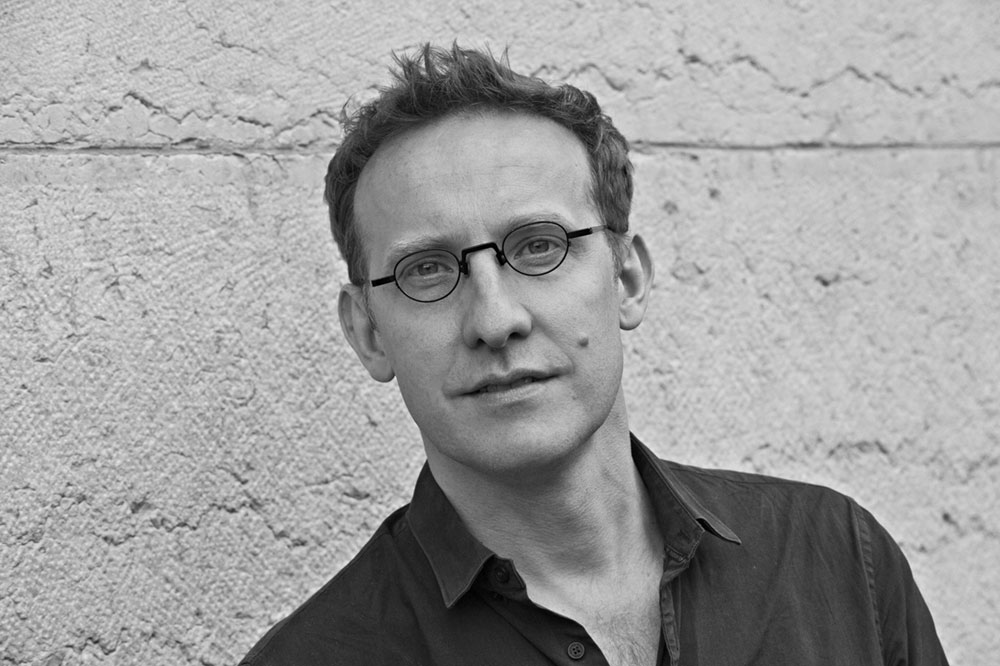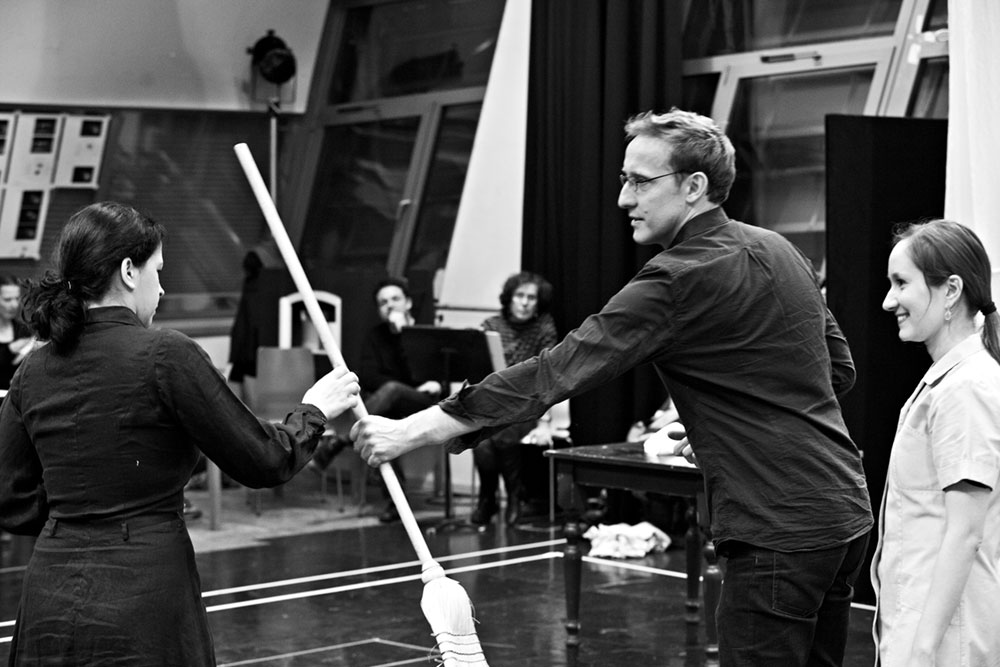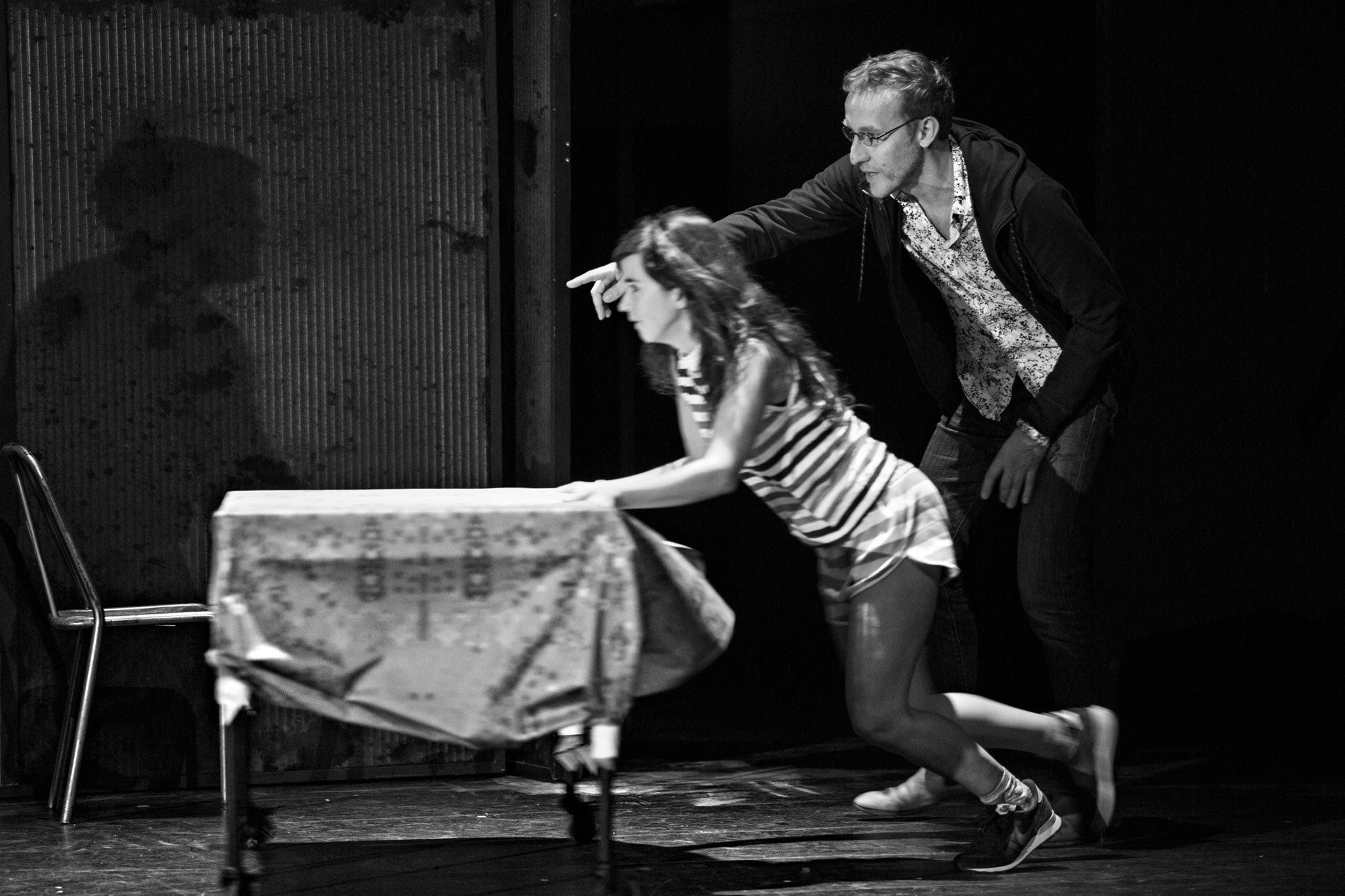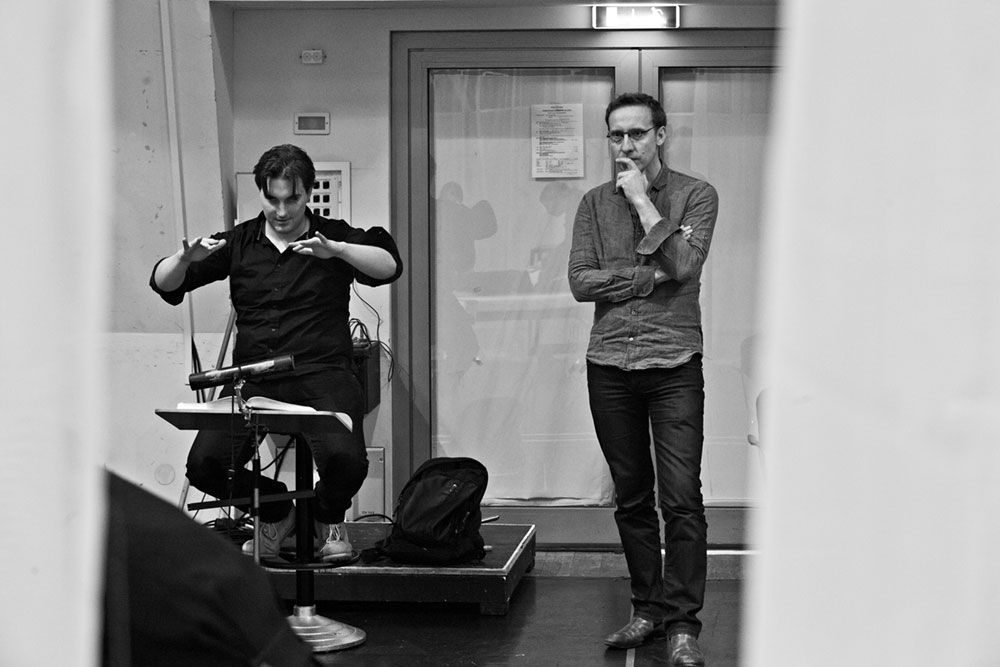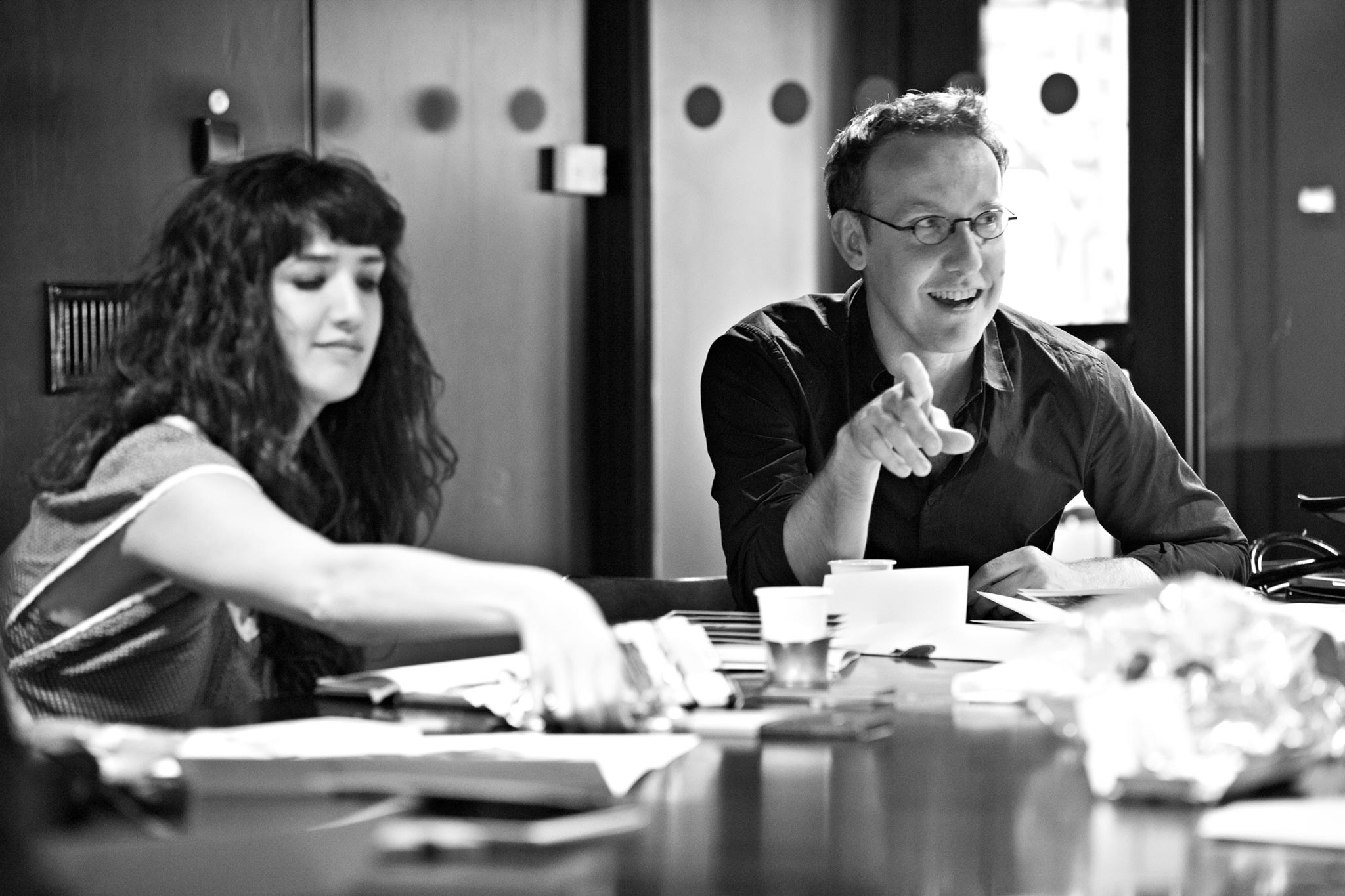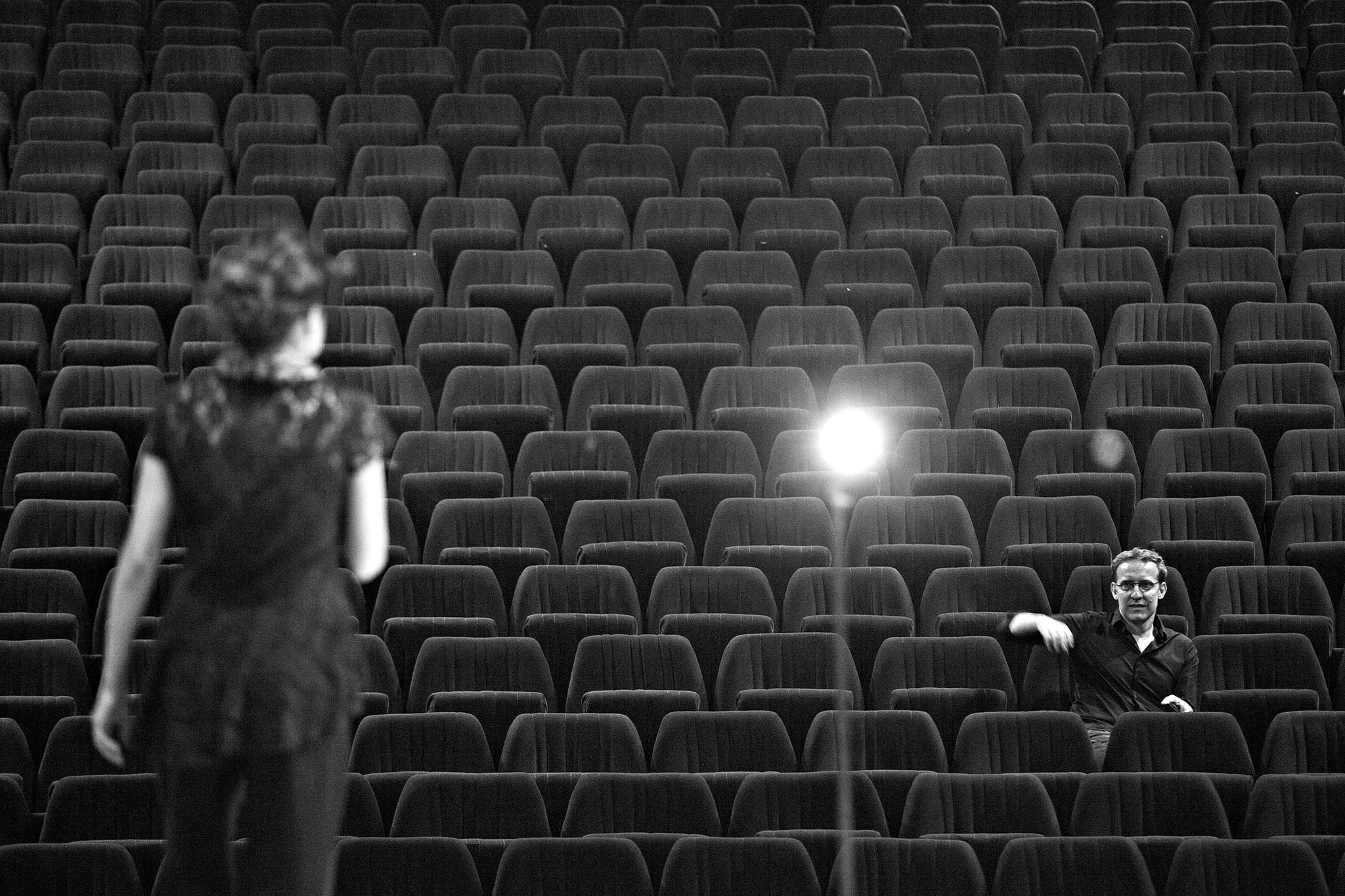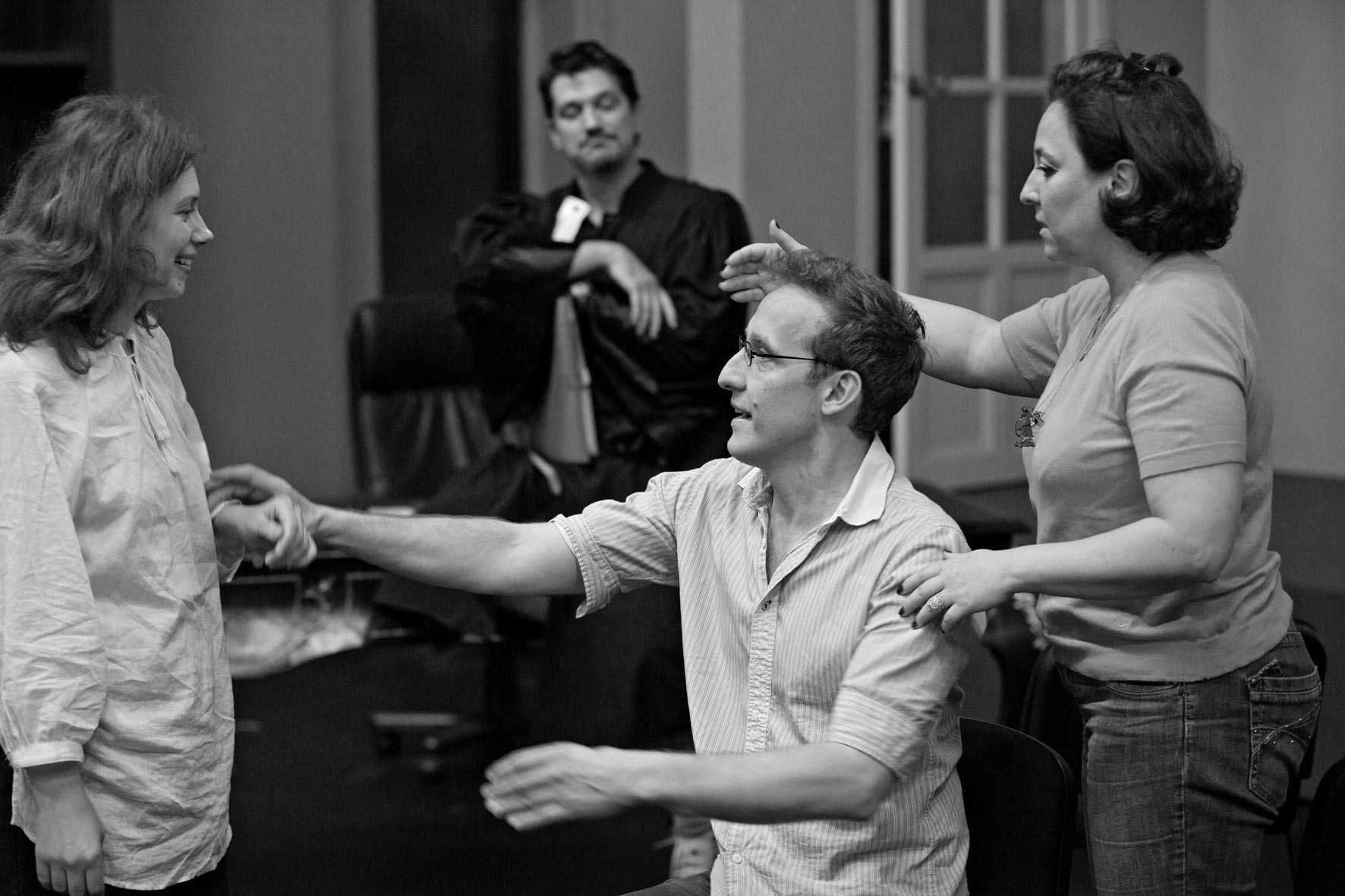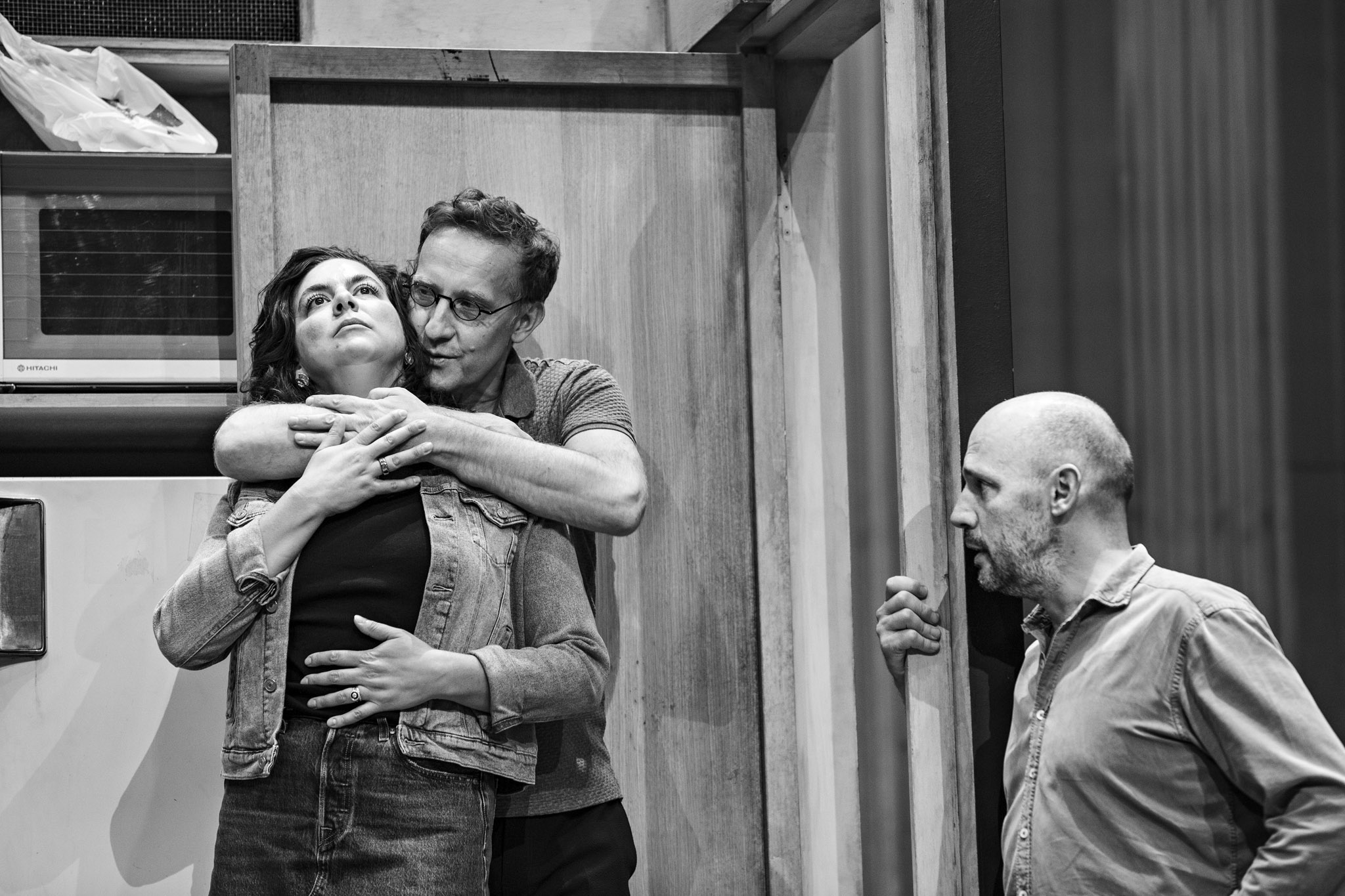TRAINING
Born in Saint-Etienne, Richard Brunel was admitted to the Saint-Etienne drama school (École Nationale du Centre dramatique de Saint-Étienne ; director of studies : Prosper Diss) where he worked with Pierre Debauche, Guy Rétoré, Stuart Seide, Philippe Adrien, Agathe Alexis, Jean-Christophe Barbaud, Pierre Barrat, Daniel Benoin, Michel Dezoteux, Mario Gonzalès, Patrick Guinand, Hervé Loichemol, Sophie Loucachevsky, Pierre Pradinas and others. While training to become an actor, he met Jean Dasté, the founding director of the Comédie de Saint-Etienne, a national centre for dramatic arts, known as a Centre Dramatique National (CDN). In the course of discussions on popular theatre, the role of audiences and decentralisation, the necessity to create a theatre company based in the same area, along with a collective, became clear. The Compagnie Anonyme was born. Its very first production was born in the Ricamarie, a town located in suburban Saint-Etienne, in collaboration with a secondary school where the young company offered artistic workshops.
